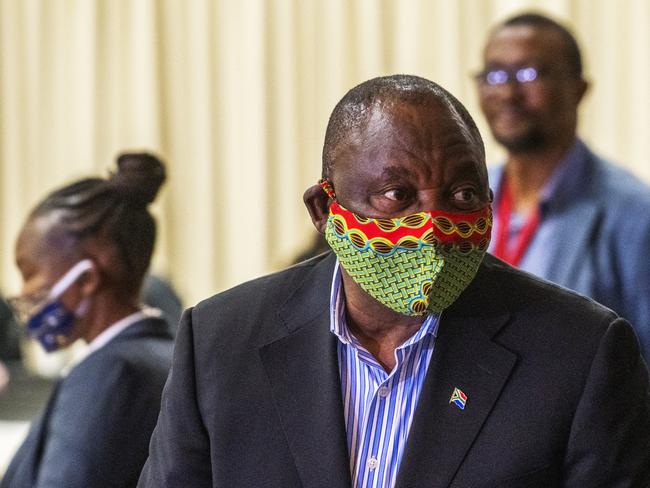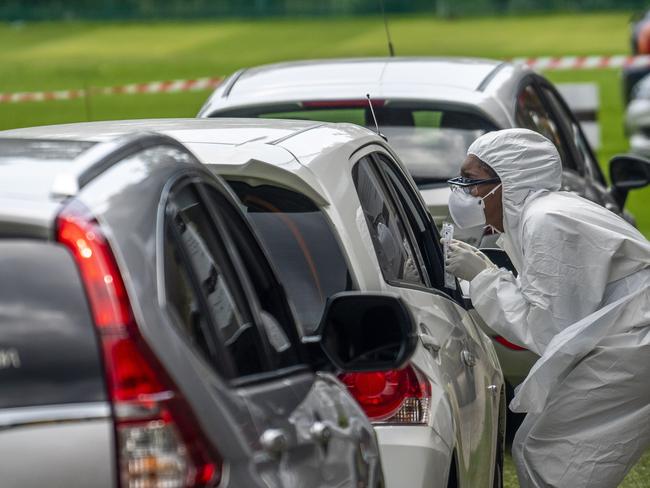Coronavirus: COVID-19 death toll climbs as Aussies ignore social distancing
Australia’s coronavirus death toll continues to climb as some locals turn their backs on health regulations, amid fears of a ‘second wave’ of the virus sweeping through America.
Coronavirus
Don't miss out on the headlines from Coronavirus. Followed categories will be added to My News.
US virus death toll tops 50,000, Australia’s hits 80
Chinese infection rate ‘four times higher’
Pentagon fears virus could be ‘weaponised’
Businesses in US, Europe take small steps to re-open
Australia’s COVID-19 death toll continues to rise, after a 90-year-old man became the 10th person to die from the virus in Tasmania.
The man, who was from the state’s northwest, died at the Mersey Community Hospital in Latrobe on Friday.
“On behalf of the Tasmanian government I would like to extend my heartfelt sympathies to (his) family, friends and loved ones,” Premier Peter Gutwein said in a statement on Saturday.
The man’s death takes the national COVID-19 toll to 80.
According to official Department of Health figures, there have been 6,687 confirmed cases of COVID-19 in Australia, with 20 new cases recorded across the country yesterday.
5,273 people have been reported as recovered from COVID-19, with more than 487,000 tests have been conducted nationwide.
The latest death comes as some Australians ignore social distancing rules, after beaches were re-opened in Sydney and then forced to close on Anzac Day.
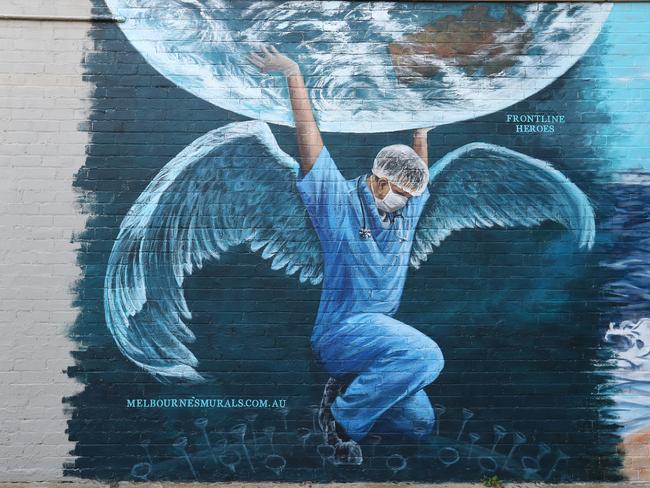
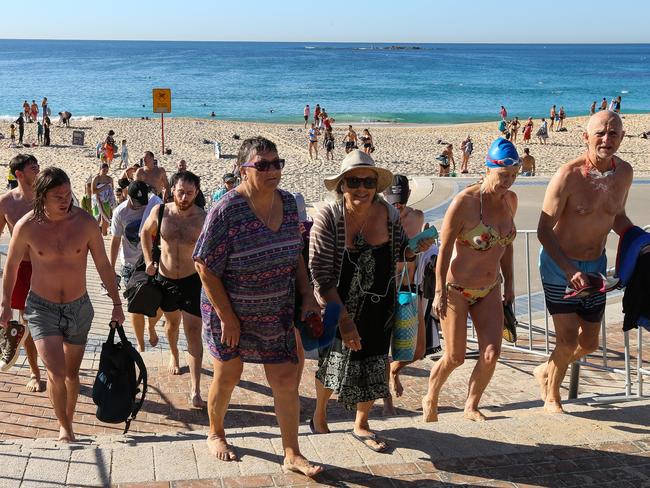
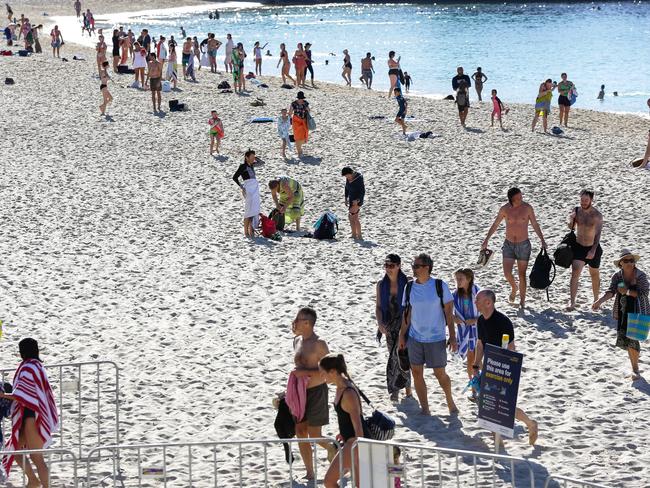
NSW Health Minister Brad Hazzard described the virus as “cagey”, “energetic” and “sneaky”, and urged members of the public to continue adhering to social distancing restrictions.
“If people become too relaxed or complacent, the virus can take off,” he said.
“We know we’re doing well, but don’t let it lull you into a false sense of security.”
FEARS OF US SECOND WAVE AS DEATH TOLL REACHES 50,000
The US passed a dreaded new COVID-19 death tally of 50,000 as some states took small steps to re-open for business despite warnings of a “second wave” of the virus hitting America.
It comes as US intelligence officials probe the possibility that America’s enemies might use the coronavirus as a bioweapon, according to an alarming report.
The Department of Defence is monitoring for the potential of the virus to be weaponised, possibly against prominent, high-level targets, sources told Politico.
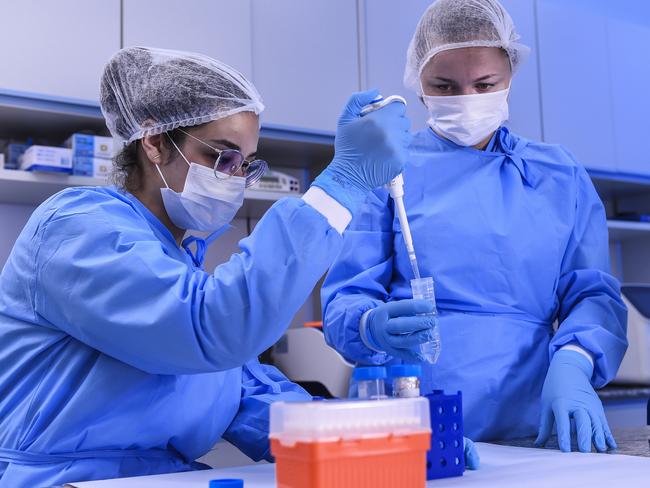
A Pentagon spokesman said its Chemical and Biological Defense program continues to support federal coronavirus countermeasures such as testing, vaccines and screening machines.
Andy Weber, who served as assistant secretary of defense for nuclear, chemical and biological defense program under President Barack Obama, said the virus could be easily spread by US enemies or terrorists using a simple spray bottle.
“In its natural state, the current virus could be used as a bioweapon by less sophisticated groups,” Mr Weber said. “Or, for a nation-state with a more advanced biological weapons program, this virus could be given enhanced characteristics.”
US President Donald Trump yesterday signed off on another relief bill for small business and hospitals worth $A800 billion.
Fears of a global “second wave” of infections were stoked by reports Singapore - previously held up as a shining example of how to beat the virus - recorded a surge in new cases.
The nation had been able to stem the spread of the disease with strict border screening, rigorous contact tracing and surveillance. The new surge seems to come from the hundreds of thousands of low-paid foreign labourers who live in tightly packed dormitories.
And in news to delight millions of soccer fans, the English Premier League could be back on TV within weeks — in a major boost for bored sports fans.
UK PM Boris Johnson has been briefed on plans for matches to be played behind closed doors but broadcast live to homes for free.
CHINA’S REAL INFECTION RATE ‘FOUR TIMES HIGHER’
Meanwhile, a new study in Hong Kong says more than 232,000 people may have been infected in the first wave of Covid-19 in mainland China - four times the official figures.
The researchers at Hong Kong University’s school of public health said China’s initial approach to diagnosing cases was too narrow.
China reported more than 55,000 cases as of 20 February but, according to the Hong Kong research published in the Lancet, the actual number would have been far greater if the definition of a Covid-19 case that was later used had been applied from the outset.
To date, after coming out several times to adjust death tolls, China has now reported more than 83,000 cases.
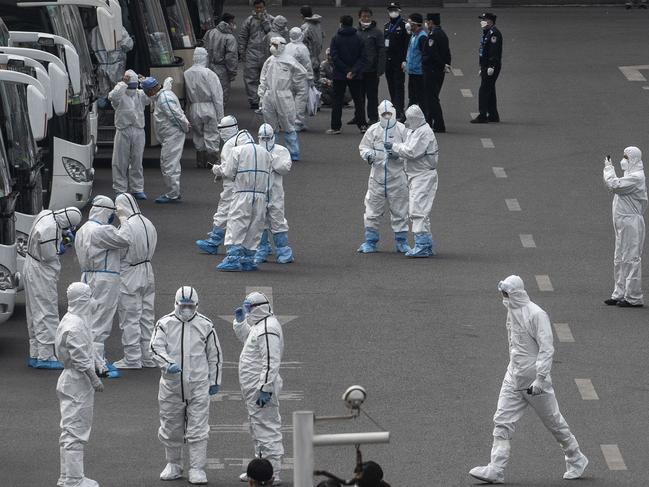
“If the fifth version of the case definition had been applied throughout the outbreak with sufficient testing capacity, we estimated that by 20 February 2020, there would have been 232,000 … confirmed cases in China as opposed to the 55,508 confirmed cases reported,” the study said.
“In China, broadening the case definitions over time allowed a greater proportion of infections to be detected as cases,” the researchers wrote.
“The true number of infections could still be higher than that currently estimated, considering the possibility of under-detection of some infections, particularly those that were mild and asymptomatic, even under the broadest case definitions.”
The new estimates come amid a mounting clamour for an international inquiry into the coronavirus outbreak’s origins, led by the United States and Australia, which have called for an international investigation into the handling of the outbreak.
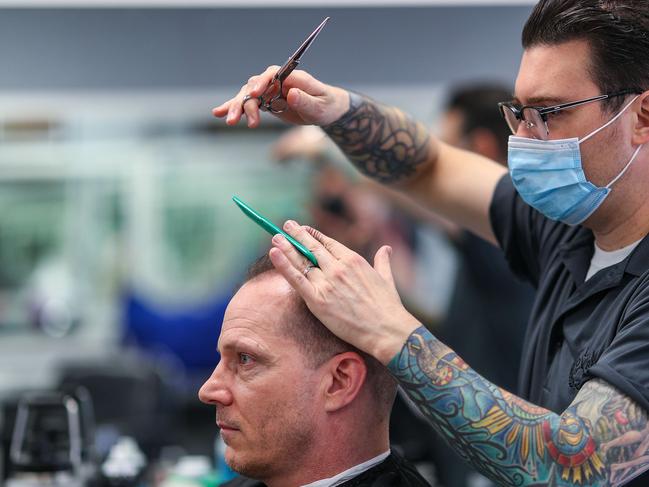
GETTING BACK TO WORK AMID FEARS OF ‘SECOND WAVE’
Businesses in a number of US states re-opened their doors following similar moves in some European countries.
Hairdressers, massage clinics, nail salons, bowling alleys, tattoo parlours and gyms were among businesses given the green light to get back to work, although reports indicated business was light. Some business owners said the lack of demand made it unviable to reopen.
It has been a similar story in Germany where some business lockdown measures were eased this week.
Germany allowed smaller retailers of under 800 square meters to re-open, as long as they abided by social distancing and hygiene measures.
Larger businesses, such as car dealerships, bike and book shops were also allowed to re-open as well as Ikea.
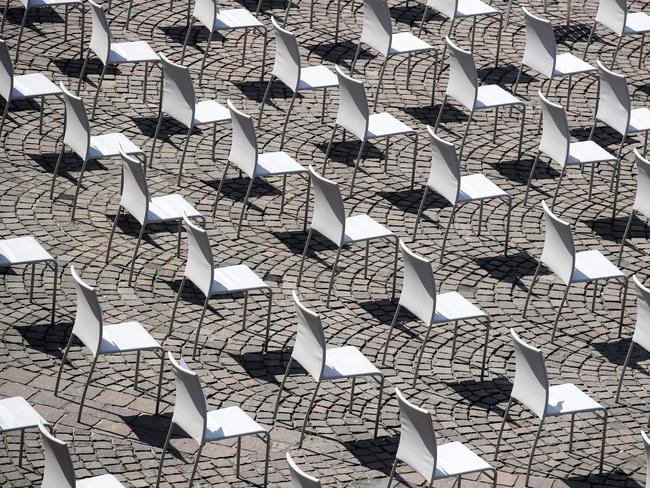
Stefan Stukenborg, head of an Ikea branch on the outskirts of Cologne, said his store’s re-opening “was very relaxed, there were no lines, there were no crowds.”
Stefan Genth, CEO of the German retail federation Handelverband Deutschland, suggested this was likely to be the case for some time as consumer sentiment was at an “all-time low,” partly becuase people were worried about keeping their jobs.
Italy, which has been the epicentre of Europe’s pandemic, also allowed some of its smaller retailers to re-open this week but store owners said they didn’t expect business to be same as before Covid-19.
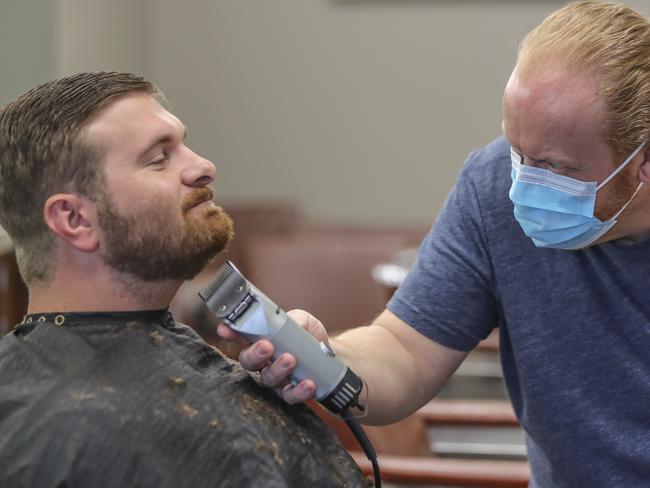
Authorities in Germany and other nations have warned of the danger of reopening “too early” and possibly sparking a second wave of infections.
Authorities are worried that a second wave of Covid-19 infections could be dangerous, making people sick “everywhere at the same time”, virologist Christian Drosten of Berlin’s Charite hospital said.
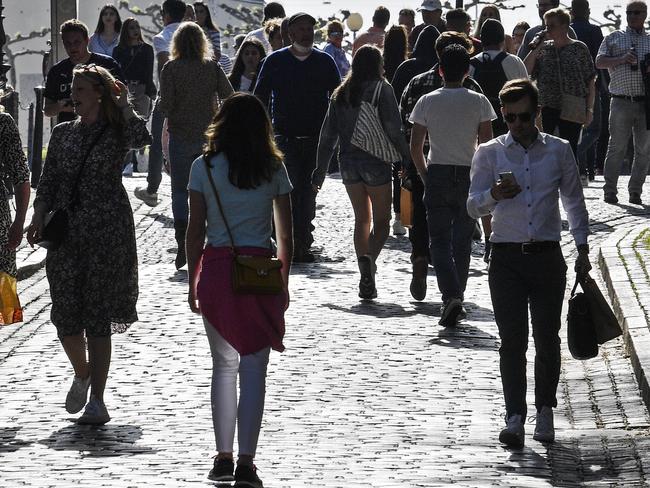
He warned of complacency, saying Germany could be in the middle of potentially “squandering” the head start it had established.
Prominent New York Governor Andrew Cuomo also spoke of fears of “second wave” if US states and countries around the world re-opened prematurely.
“The game isn’t over, it’s only half time,” he said after reporting improving infection rates and death tolls for his state.
“If we are premature, all the progress we made is gone. Virtually all the experts say not only will the virus increase, but it will reach a higher point than we reached the first time.
“I know everyone is impatient, everyone wants to re-open, but that is what will happen.”
UK GOVT WARNED OF PANDEMIC RISK LAST YEAR: REPORT
Ministers in the UK were warned about the risk of coronavirus last year and told to stockpile PPE, a leaked document has revealed.
The detailed Cabinet Office document claimed a pandemic could cost tens of thousands of lives and demanded “capability requirements” to keep the nation safe.
Leaked to the Guardian, the document reveals the Government were told to stockpile Personal Protective Equipment, establish contact tracing, and draw up plans to manage a surge in deaths.
The document said a pandemic would play out in up to three waves, with 50 per cent of the population to be infected. They were warned that a pandemic of moderate virulence could lead to 65,600 deaths and the potential cost to the UK could be $A4.5 trillion.
It comes as the UK’s hospital death toll from coronavirus heads towards 20,000. Italy has 26,000 deaths, Spain 23,000, and France more than 22,000.
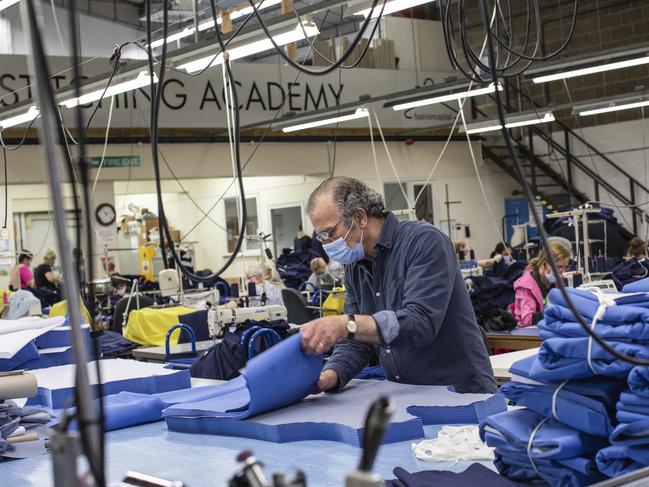
NOW EXPERTS SAY STAYING AT HOME COULD KEEP VIRUS THREAT ALIVE
In Italy, where the strict stay at home order has been credited with finally getting that nation’s crisis under some semblance of control, authorities are now warning that home has become a dangerous place for many Italians.
Italian households represent “the biggest reservoir of infections,” said Massimo Galli, the director of the infectious diseases department at Luigi Sacco University Hospital in Milan. He called the cases “the possible restarting point of the epidemic in case of a reopening”.
The family acts as a multiplier, said Andrea Crisanti, the top scientific consultant on the virus in the Veneto region.
“This is a ticking time bomb,” he told the New York Times.
The predicament of home infections is emerging not just in Italy but in hot spots like the suburbs of New York and Paris and areas of Rome and Milan.
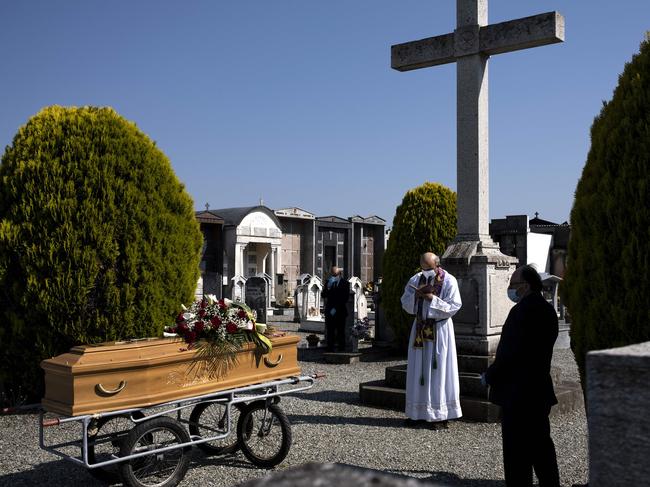
Local officials and epidemiologists say the problem is getting too little attention, particularly as the government has announced tentative steps toward reopening in early May.
Italy’s leading virologists now consider home infections, alongside clusters in retirement homes, to be a major source of the country’s contagion.
Living together in close quarters and the failure to move the infected into dedicated quarantine facilities have propped up the curve of infections that “stay home” measures were designed to suppress.
The Chinese government dealt with this problem by rounding up all residents in Wuhan infected with the coronavirus and isolating them in quarantine camps. It is an approach that the would prove far harder to implement in western countries that place higher value on individual liberty.
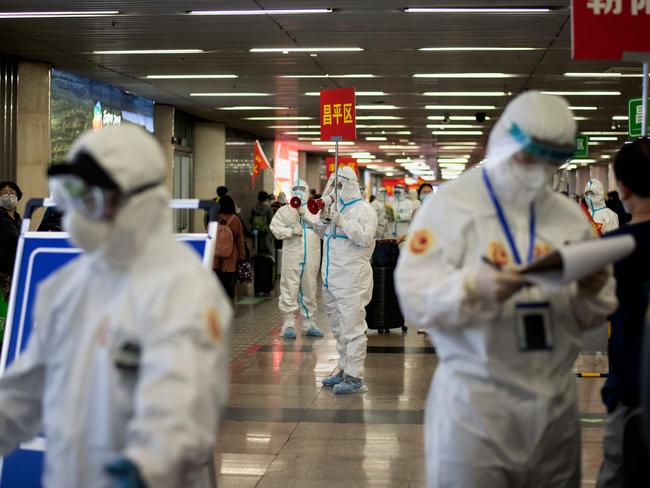
CUOMO BACKS TRUMP ON WHO CRITICISM
As media critical of the US President had a field day lashing him for what he said was a “sarcastic” remark to explore the possibility of injecting disinfectant into people sick with COVID-19, he recieved support from a surprise source.
Leading Democratic Governor Andrew Cuomo said he back Mr Trump’s view that the World Health Organisation had to be questioned about its response to the outbreak of the coronavirus pandemic.
Mr Cuomo said it was no plain to see that the US - especially New York - had been left exposure to infection from millions of travellers from Europe and Asia earlier this year - unaware of the seriousness of the situation.
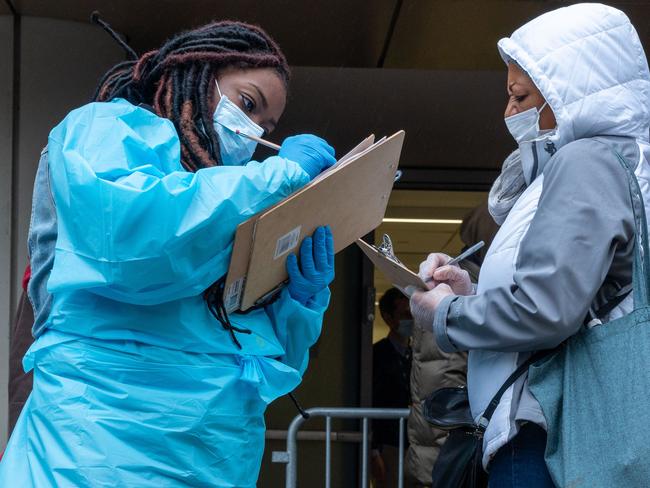
“Whose job is it to warn us of these global pandemics?” Mr Cuomo said.
“The President says its the World Health Organisation and that’s why he’s taken action against them.
“Not my field but he’s right to ask the question because this was too little too late and let’s find out what happened so it doesn’t happen again.”
US STATES FIND BUSINESS OPENING SLOWLY
Meanwhile, some businesses took the first steps toward reopening in the US state of Georgia Friday as the Republican governor eased a month-long shutdown amid experts’ warnings of a potential new surge in coronavirus infections.
In Atlanta, a TV reporter tweeted a photo of a man getting a haircut - he was among the first customers at a barber shop that was reopening. The barber was wearing a mask, but no gloves or other PPE.
A bowling alley in Rome, Georgia, posted on Facebook that it was getting back in business with social distancing rules, including a limit of six people to a lane and plenty of hand sanitizer.
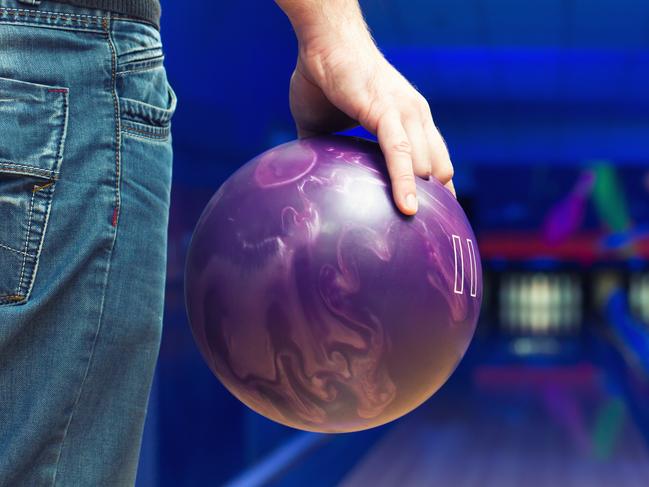
With deaths and infections still rising in Georgia, many business owners planned to remain closed in spite of Governor Brian Kemp’s assurance that hospital visits and new cases have levelled off enough for barbers, tattoo artists, massage therapists and personal trainers to return to work with restrictions.
President Donald Trump, who had earlier been encouraging US states to reopen, denies having supported Mr Kemp’s controversial reopening of potentially dangerous businesses.
I (or @VP) never gave Governor Brian Kemp an OK on those few businesses outside of the Guidelines. FAKE NEWS! Spas, beauty salons, tattoo parlors, & barber shops should take a little slower path, but I told the Governor to do what is right for the great people of Georgia (& USA)!
— Donald J. Trump (@realDonaldTrump) April 24, 2020
The President yesterday signed off on another relief bill for small business and hospitals worth $A800 billion.
At a press briefing after the signing, he dismissed criticism about his suggestion Thursday that perhaps medical experts could look at the possibility of injecting disinfectant intp COVID-19 patients, saying it had been a “sarcastic” remark aimed at reporters.
BUSINESSES IN THE STATES FEAR THE LONG TERM
In Georgia, David Huynh had 60 clients booked for appointments Friday at his nail salon in Savannah.
He said that’s less than half the customers he would normally see.
But he’s also starting back with fewer nail technicians to allow for empty work stations between them.
Mr Huynh’s business, Envy Nail Bar, has been closed since March 26.
But the losses extend beyond just the month he’s been shut down.
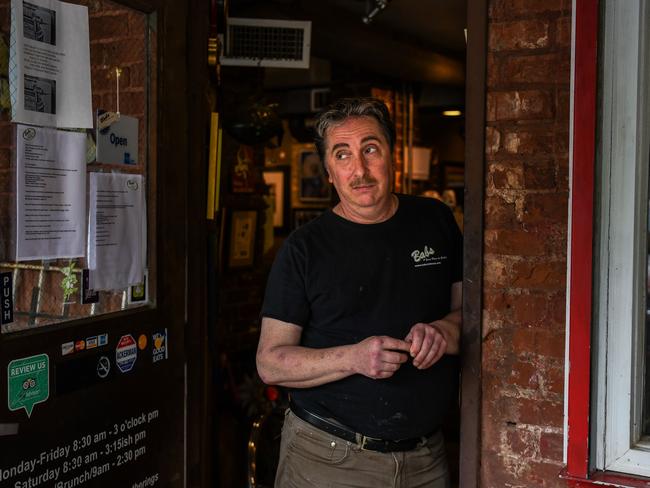
“We lost graduations, proms and weddings,” Mr Huynh said. “Already I see stores closing down permanently. ... A lot of people don’t realise, if the nation stays shut down any longer, there will be severe consequences.”
Governor Kemp’s order allowing certain businesses to reopen requires precautions such as screening customers for potential symptoms, providing staff with masks and other protective gear as available and doing frequent cleaning.
The governor has said it’s imperative to begin easing his state’s economic suffering.
The Georgia Department of Labor announced that 1.1 million workers - about one-fifth of the state’s workforce - filed for unemployment in the five weeks since the crisis started. The national figure is 27 million.
Public health experts have warned that reopening too quickly could trigger a coronavirus resurgence.
.
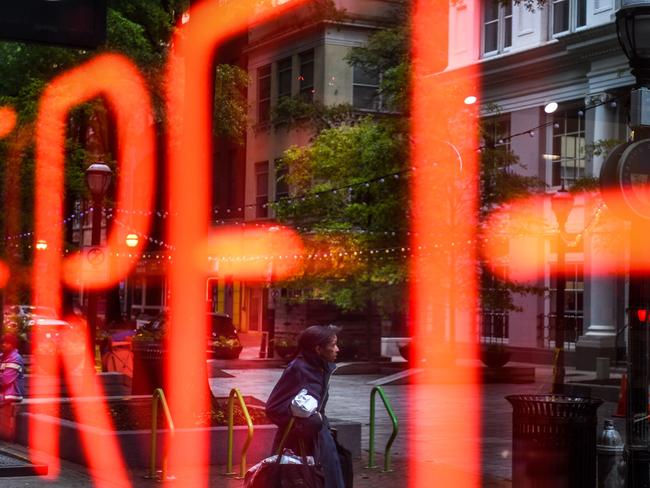
Shannon Pengitore, a massage therapist in Marietta outside Atlanta, had a few clients ask for appointments this week.
But she’s not ready, saying she hasn’t seen clear protocols from the state for protecting herself and her clients.
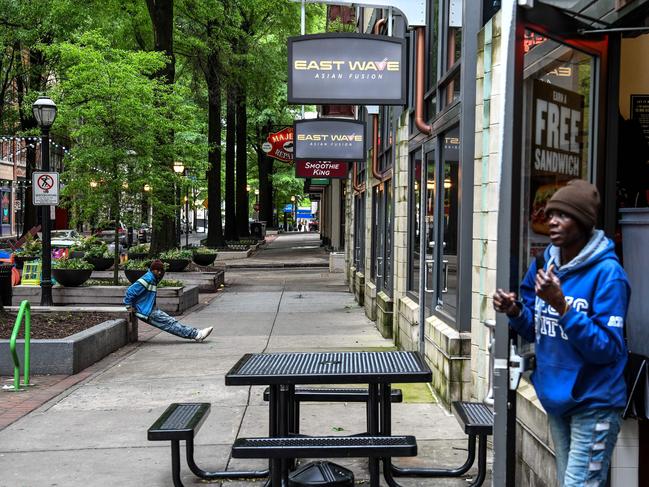
Starting Monday, Georgia will allow movie theaters to reopen and restaurants to resume dine-in service - as long as customers are kept at a distance. Restaurants are allowed to re-open in Alaska.
Chef Hugh Acheson, who owns three fine-dining restaurants in Athens and Atlanta, said Georgia’s conducting too little testing to safely reopen. He also doubts it would be profitable.
“If I open up fine dining in midtown Atlanta and ... 25 people show up to dinner because I’m brazen enough to do this, that’s not enough to make money and stay in business,” Acheson said.
SCOTT MORRISON ANNOUNCES NEW GUIDELINES, APP
Scott Morrison has said new guidelines are coming on a range of restrictions in place, and Australians can expect the COVID-19 contact tracing app soon.
Mr Morrison said the app to automate contact tracing was now in the final stages of development, and that rapid response measures were being bolstered to handle outbreaks.
The Australian Government’s controversial app will store users’ personal information in a central database hosted by US tech giant Amazon, it was confirmed today.
But Prime Minister Scott Morrison said the database would be hosted on servers within Australia and it would be “illegal” for the multibillion-dollar company to use the information for any other purpose than for what it was originally intended.
The national contract to store the details of Australian app users and coronavirus carriers was awarded to the Seattle-based firm after an invitation-only tender organised by the Department of Home Affairs.
The Digital Transformation Agency, which has taken over the project, also confirmed it would store decryption keys for the information on the same servers as the information itself, even though security experts advise against this practice.
It’s understood the decryption keys will be protected by Amazon software.
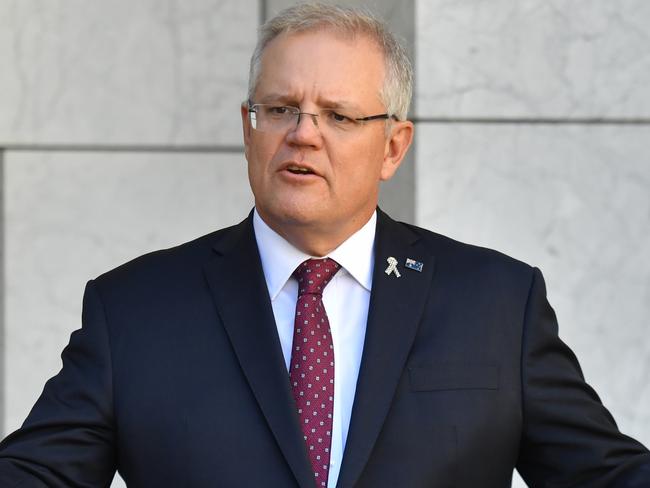
The app, which is due to be released within weeks, will be based on Singapore’s TraceTogether app, and will use Bluetooth beacons to track whether users have been within 1.5m of one another for 15 minutes or longer.
If an app user is later diagnosed with COVID-19, state-based health officials will use information gathered by the app to identify and notify their close contacts.
Mr Morrison said the app would be released “soon,” but added “there are still some issues we’re working through”.
He said the Federal Government had worked with Amazon “on many, many sensitive issues” in the past.
But Optus Macquarie University Cyber Security Hub executive director Dali Kaafar said the decision to host this information offshore with a foreign company would not help to allay fears about user privacy. “This will likely raise more concerns or more questions,” he said.
“That will be also an important tool for the country as we seek to manage how we live in a COVID-safe economy and community into the future,” he said.
“And the rapid response to individual outbreaks – we should be aware, as a community right across the country, that when we take further steps to ease restrictions, of course, we will continue to see outbreaks. That is to be expected. What matters is being able to move on them quickly.”
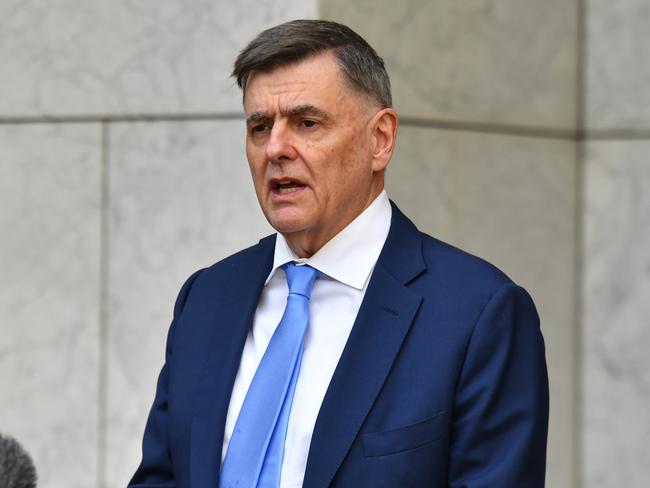
The national cabinet, which met this morning, has also agreed to put in place national principles to guide the resumption of sport and recreation, including at a professional level.
“So, the major sporting codes, our Olympic sports, training arrangements that sit around support for those activities, by elite sportspeople,” he said.
“Secondly, at the community competitive sport level. That is such an important part of our way of life here in Australia, and the principles that can help guide decisions by states and territories in the future.
“And, thirdly, at the individual passive level of sport and recreation. Activities from everything from – whether it’s in the shire, if you’re going surfing, or if you’re walking in the local national park, or whatever it might happen to be, those set of principles that states and territories can draw on in terms of getting some consistency across the country as we move into this next phase.”
And national safe workplace principles have also been locked in, with Mr Morrison saying his focus was on getting Australians back to work.
“This is all about getting Australians back to work, and ensuring that when they go back to work that they and their families can feel safe in going back to work, and to ensure that there are important principles in place, there are protocols and procedures that, should a COVID case present in a workplace, then the rules that people need to follow …,” he said.
Schools do not have to keep children 1.5 metres apart, the national cabinet has agreed.
Mr Morrison said the national medical expert panel had confirmed the social distancing measure – along with one person per four square metres – did not apply in classrooms for kids.
Aged care homes face having to seek approval for locking down their facilities, with Prime Minister Scott Morrison declaring he will not cop “having people stuck in their rooms, not being able to be visited by their loved ones and carers and other support people.”
“That’s not okay,” the PM told reporters this afternoon. “We are not going to have these as secret places, where people can’t access them.”
Shutting off homes was only valid if there was a “very real and serious medical reason”, as had been the case in parts of northwest Tasmania and western Sydney, Mr Morrison said.
Mr Morrison said he, along with the state and territory leaders, were “concerned about restrictions beyond the baseline requirements of what National Cabinet has agreed, based on the expert medical advice.”
“Should we not see an improvement in this area, under the voluntary arrangements that we currently have in place,” he said, “the Commonwealth would be moving to require aged care facilities that wish to have an exemption to those national principles, those national arrangements, then they would need to seek authority to do that from the Commonwealth, and we would make such a decision in consultation with the relevant state and territory jurisdiction.
“We would very much like to keep these things on a basis where aged care facilities are exercising their proper discretion,” he said.
One week after the national cabinet agreed to a four-week timeline to consider easing restrictions in the middle of May, Mr Morrison said: “Good progress is being made on the core requirements … that will enable our road back.”
Testing regimes are being expanded across the states and territories, which he said was a “very important pillar” to deal with the virus in the future.
New modelling, released by the Prime Minister and Chief Medical Officer Professor Brendan Murphy, shows the effective reproduction rate remains below one – meaning each infected patient is spreading the virus to fewer than one other person on average.
Prof Murphy said the country needed to be “incredibly vigilant” about outbreaks – like the one seen in Victoria today.
The national cabinet will meet again next Friday.
DISINFECTANT MAKER REBUFFS TRUMP’S BIZARRE IDEA
The parent company of Lysol and another disinfectant warned that its products should not be used as an internal treatment for the coronavirus after President Donald Trump wondered about the prospect during a White House briefing.
Trump noted on Thursday that researchers were looking at the effects of disinfectants on the virus and wondered aloud if they could be injected into people, saying the virus “does a tremendous number on the lungs, so it would be interesting to check that” - although he said Friday he was just being “sarcastic”.
That prompted a strong warning from the maker of disinfectants Lysol and Dettol, which said it was issuing a statement to combat “recent speculation.”
“As a global leader in health and hygiene products, we must be clear that under no circumstance should our disinfectant products be administered into the human body (through injection, ingestion or any other route),” said the statement from Reckitt Benckiser.
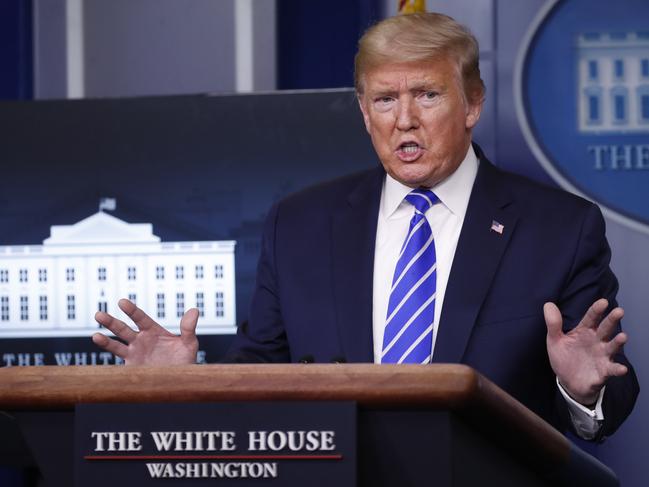
William Bryan of the Department of Homeland Security said at a White House briefing Thursday that there are “emerging results” from new research that suggest solar light has a powerful effect in killing the virus on surfaces and in the air.
He said scientists have seen a similar effect from higher temperatures and humidity.
A biocontainment lab in Maryland has been conducting testing on the virus since February, Bryan said.
“The virus is dying at a much more rapid pace just from exposure to higher temperatures and just from exposure to humidity,” Bryan said.
In March, Dr. Michael Ryan, the World Health Organisation’s emergencies chief. said, “We have to assume that the virus will continue to have the capacity to spread, and it’s a false hope to say yes, it will just disappear in the summertime like influenza.”
AUSTRALIA RULES OUT MORE TAX HIKES
Finance Minister Mathias Cormann has ruled out any tax increases in response to the coronavirus-induced economic storm.
The government is considering wide-ranging reform in the October federal budget, which shapes as a crucial juncture in the national recovery.
“Tax increases are off the table because you don’t want to make it harder for businesses to be successful,” Senator Cormann told Sky News on Friday.
It comes as leaders will examine Australia’s very low rate of coronavirus transmissions amid further discussions about the plan for lifting social restrictions.
After the first week of a four-week holding pattern, Prime Minister Scott Morrison says things are looking good.
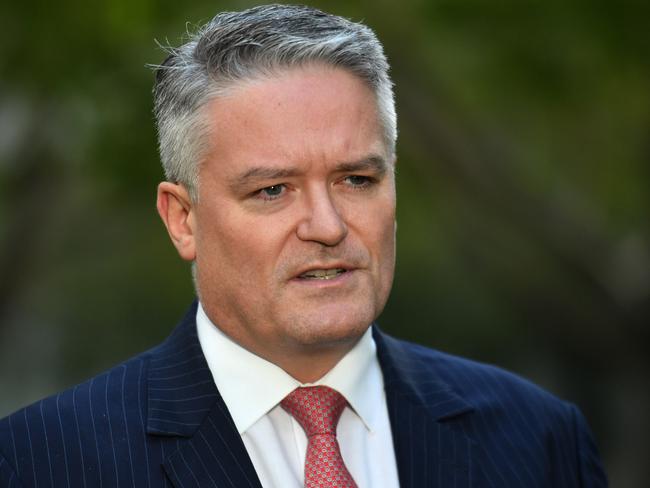
“We are on the road back – and that is demonstrated by the measures that we already have taken – and we are on the way back to a COVID-safe economy as well,” he told reporters on Thursday.
National cabinet will consider the latest Australian modelling when it meets today.
While the data pool is still small given Australia’s success in containing the virus, deputy chief medical officer Nick Coatsworth said experts were able to draw sound scientific conclusions from it.
The transmission rate is one of the main pillars governments and their health advisers are looking at as they seek to map out the way forward. The other crucial steps are ensuring hospital capacity and medical supplies, and boosting tracing and testing regimes.
The number of people allowed to be at events is likely to be considered in the first round of easing restrictions.
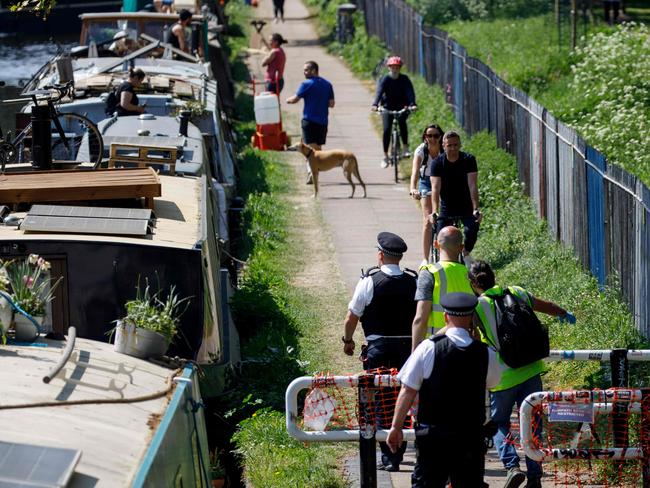
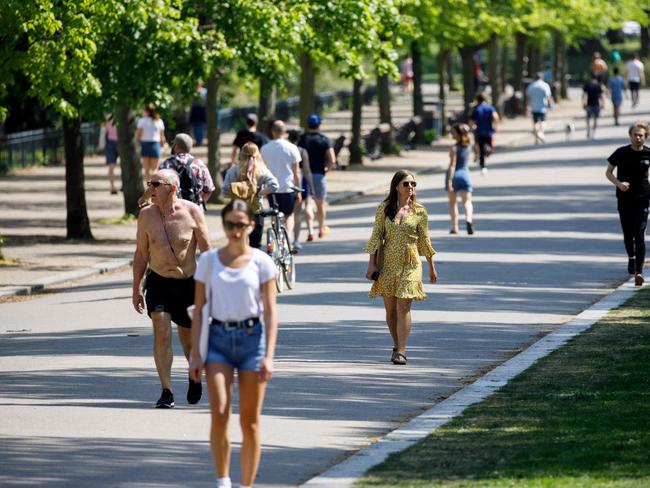
AFRICA DANGEROUSLY BEHIND IN GLOBAL RACE FOR VIRUS GEAR
Africa’s coronavirus cases have surged 43 per cent in the past week but its countries are dangerously behind in the global race for scarce medical equipment.
Ten nations have no ventilators at all.
Outbid by richer countries, and not receiving medical gear from top aid donor the United States, African officials scramble for solutions as virus cases climb past 27,000.
Even in the best scenario, the United Nations says 74 million test kits and 30,000 ventilators will be needed by the continent’s 1.3 billion people this year. Very few are in hand.
“We are competing with the developed world,” said John Nkengasong, director of the Africa Centers for Disease Control and Prevention.
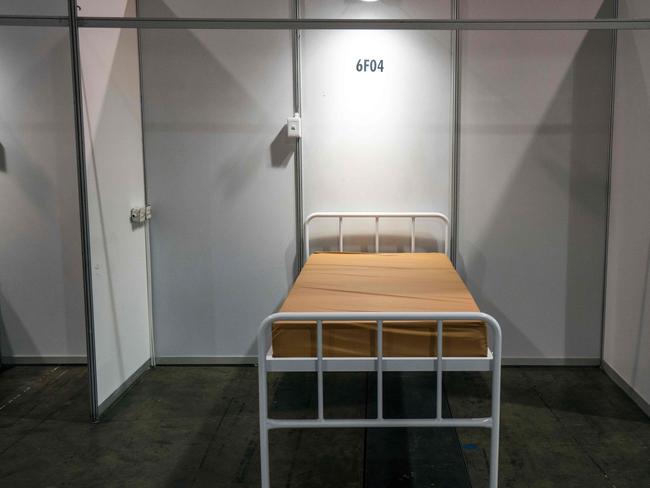
“The very future of the continent will depend on how this matter is handled.”
Politicians instinctively try to protect their own people and “we know that sometimes the worst in human behavior comes out,” said Simon Missiri, Africa director with the International Federation of Red Cross and Red Crescent Societies, urging an equitable approach to help developing nations.
The crisis has jolted African nations into creating a pooled purchasing platform under the African Union to improve negotiating power.
Within days of its formation, the AU landed more than 100,000 test kits from a German source. The World Health Organization is pitching in; it has reported fewer than 2,000 ventilators across 41 African countries.
